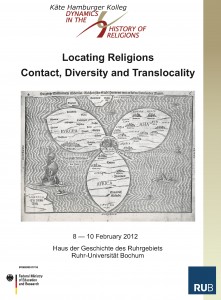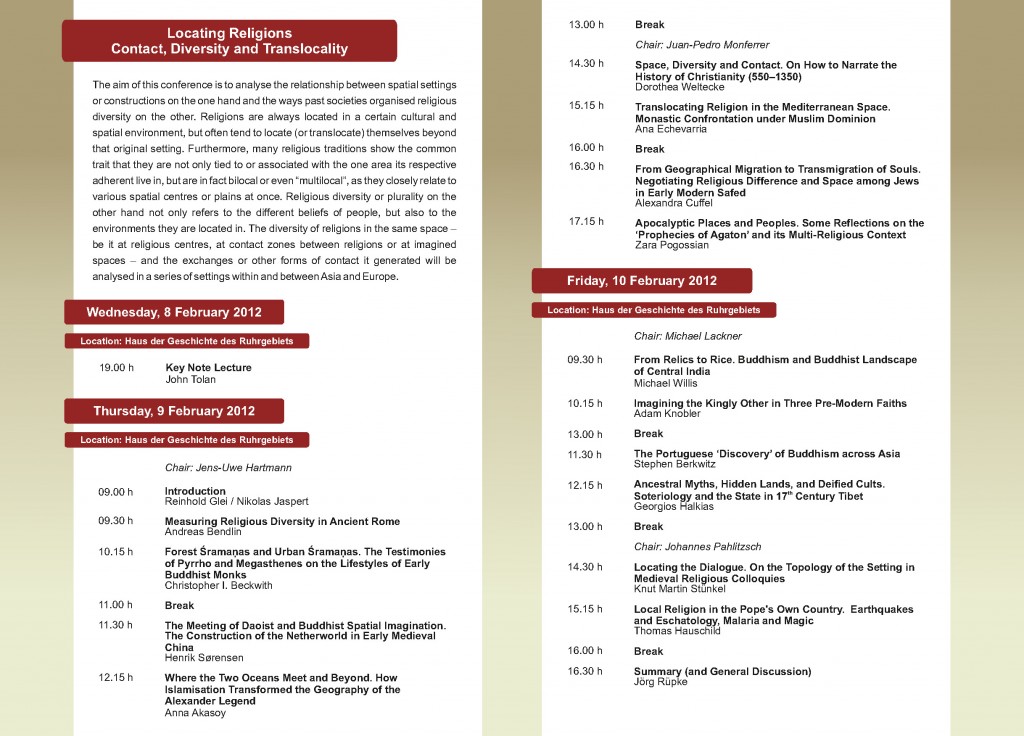by Steve Berkwitz

Prof. Stephen C. Berkwitz recently presented a conference paper entitled “The Portuguese Discovery of Buddhism” at a conference called “Locating Religions: Contact, Diversity and Translocality in Bochum, Germany. This conference was organized for the visiting research fellows in the Käte Hamburger Kolleg at Ruhr-Universität Bochum to present their respective research in a public setting.
Prof. Berkwitz presented some of the work in which he has been engaged while on research leave from Missouri State University. In his paper, he argued that although many scholars date the European “discovery” of Buddhism to the nineteenth century scholarship of Orientalists, there remains a large body of material pointing to encounters with Buddhism among Portuguese and Portuguese-sponsored missionaries and chroniclers in the sixteenth and seventeenth centuries across Asia. His paper surveyed some notable, early representations of the Buddhist religion in order to grasp the ways in which early modern Europeans first perceived and categorized a religious system that appeared across many parts of Asia. He discussed how Buddhism was discursively constructed as a rival religion vis-à-vis Christianity in Sri Lanka, Japan, and Tibet by Portuguese writers. By locating a religion of the Buddha in many places across Asia, the Portuguese gradually began to conceptualize Buddhism as a “world religion” with striking similarities to Catholicism. However, he also noted, that these early modern writers also maintained the exclusive truth of Christianity, leading them ultimately to denounce this Asian religion as a diabolical system of falsehoods and distortions. Prof. Berkwitz will continue his research in the project through May 2012, when his fellowship in Germany is finished.


